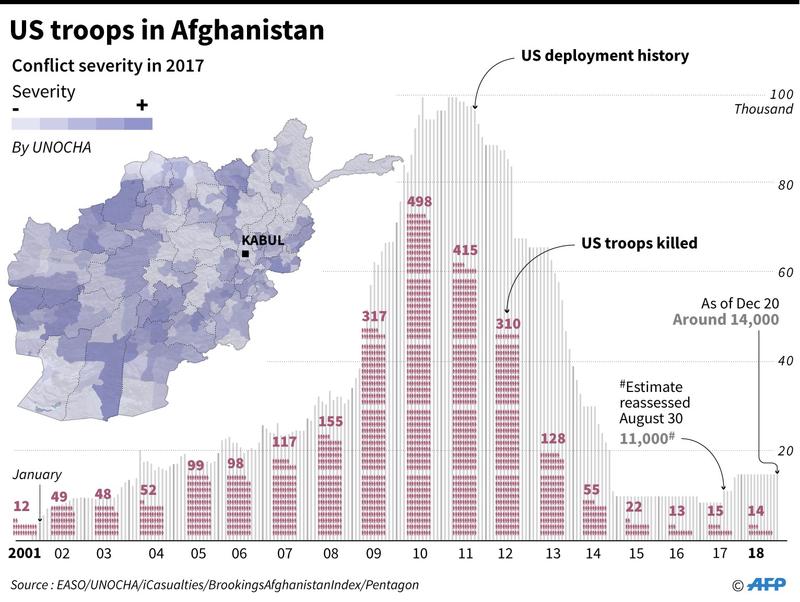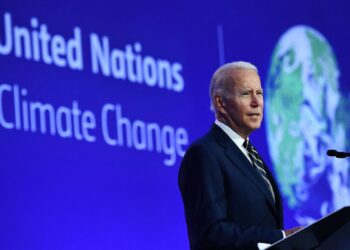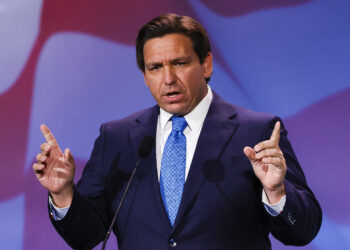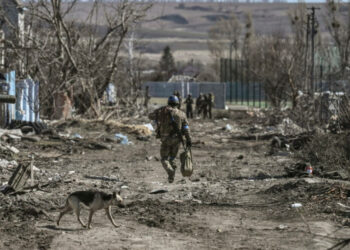It is unsurprising that neither Washington nor Kabul is taking any delight in the duration of the U.S.-led peace talks with the Taliban. Except for a vague Framework Agreement, the negotiations have not resulted in any tangible outcomes. After six rounds of talks, U.S. Peace Envoy Zalmay Khalilzad even referred to the negotiations as “insufficient” and a “slow progress.”
Kabul is equally frustrated as there has been no breakthrough that could change conditions for the Afghan people. The war has intensified, not slowed down. Meanwhile, the Taliban still have not agreed to a meeting with the Afghan negotiation team and have rejected the nation’s plea for a ceasefire.
(1/2) Just concluded a round of talks in #Doha. We made steady but slow progress on aspects of the framework for ending the #Afghan war. We are getting into the 'nitty gritty.' The devil is always in the details.
— U.S. Special Representative Thomas West (@US4AfghanPeace) May 9, 2019
Why is that, one might ask. What is the “nitty-gritty” of the framework for ending 18 years of bloodshed and destruction in Afghanistan?
Framework Agreement for Peace
In a general sense, there are two areas of particular interest to the United States. First, the U.S. wants to ensure that Afghanistan will never again become a haven for international terrorists – a crazy expectation of the Taliban. Second, the U.S. wants to withdraw its troops from the country.
So far, the U.S.-led peace talks with the notorious Taliban have only provided the latter with new political, military, and diplomatic relevance. The American approach has also failed to discredit the insurgents and get them to agree to a ceasefire and intra-Afghan dialogue, which are the other two major components of the framework.
The United States’ failures to secure minimum concessions from the Taliban on matters of serious concern to the Afghan people mainly stem from a lack of coordination with the Afghan government. The U.S. has been treating the Taliban and the Afghan government, the conflict’s two main parties, in complete isolation from each other while presuming that bringing the two antagonists to the negotiation table is likely to complicate the process further.
This has stirred debate between political figures and the public at large in Afghanistan. If the United States, even before concluding the so-called Framework Agreement, have heretofore made a tremendous compromise by engaging in direct talks with a terrorist movement, it must treat the Afghan government with equal gestures.
The Taliban, by engaging in these talks, are seeking to increase their own political relevance as well as undermine the legitimacy of the Afghan government. If the United States cannot secure a commitment from the Taliban on a ceasefire, it should at least create a synergy with the Afghan government that will leverage the effects of all national and international formats into a coordinated, synchronized, and comprehensive peace effort.
Changing Strategic Foundations
By organizing the Consultative Peace Loya Jirga (grand assembly) last month, Kabul tried to collect public opinion about the peace process. The government solicited views from over 3,000 educated Afghan men and women from across the country, including from areas under the Taliban’s control or influence. Coming from different walks of life, their unwavering commitment to sustainable peace brought them together.
Over five days, Jirga members discussed in great details all aspects of not just ending the war but also paving the way for a political settlement, sustaining peace, replacing the rule of gun with the rule of law, and, most importantly, preserving the fledgling post-2001 democratic institutions.
Before the Peace Jirga, the U.S. and Afghan governments were struggling to gain access to the people’s considerations. The Peace Jirga changed this and gave counsel to Afghan and U.S. officials while also giving hope to millions of Afghans who have lived through years of violence and destruction.
The demands and advice of the Afghan people, conveyed through the official 23-clause communique, appear to have created a synergy between all actors without upsetting their natural balance. It cautions against regressing on the achievements of the post-2001 era, including the Afghan Constitution, the Republican political system, and human rights while underscoring the possibility of constitutional amendments after a political settlement. It also calls for a scheduled and responsible withdrawal of international troops. Such an outcome should serve as a vehicle of increased collaboration between the U.S. and Afghan governments in their efforts to bring peace.
Need for Common Basis
Winning the trust and confidence of the Afghan people is of paramount importance if the United States wants not just to end its longest war but also leave a noble legacy behind, at least this time. However, the U.S. not only overlooked the significance of Loya Jirga but also seems to reprimand the Afghan government for hallmarking it as a historic achievement of the Afghan people.
The Afghan government has listed its reservations with regards to the ongoing U.S.-led peace talks with the Taliban. Referring to the “principally agreed upon framework,” the Afghan people are asking the U.S. and their own government why the United States is discussing troops withdrawal with the Taliban while the country has signed both the Strategic Partnership Agreement and Bilateral Security Agreement with the Afghan government. These two agreements were primarily signed to not only allow the United States and NATO forces to maintain their military presence in Afghanistan but also lay the foundations of a lasting counter-terrorism strategy.

One can argue that thinking that the U.S. would uphold those two agreements is pure naivety. If the Donald J. Trump administration can unhesitatingly and unilaterally withdraw from the Iran nuclear deal, abandoning these two agreements could happen at breakneck speed.
However, if the allied forces’ purpose in Afghanistan is to play the role of a key enabler of the Afghan people and government to become an incontrovertible member of the global democratic community, scrapping those agreements will at best have unexpected and at worst damaging effects. Moreover, its impacts will likely be felt not only in the immediate future but also much further ahead in time.
One thing must be made very clear. Only the Afghan people and government can ensure the sustainability of the nascent democratic institutions in Afghanistan, and the U.S. must enlarge the circle of its ongoing talks with the Taliban to put their potentials to work.
Disclaimer: The views and opinions expressed here are those of the author and do not necessarily reflect the editorial position of The Globe Post.






















